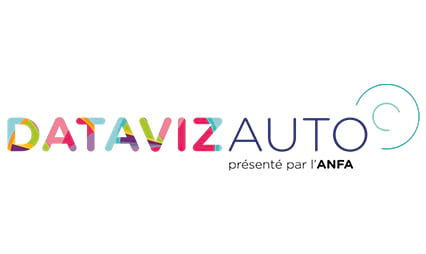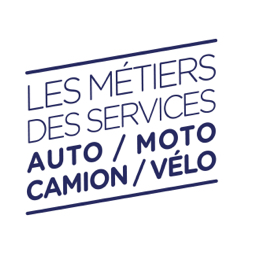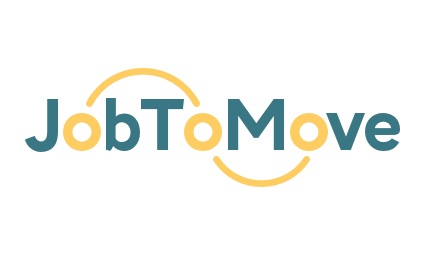Partenariat pour la transformation digitale de la formation professionnelle (IDiVET)
Lancé officiellement en juin dernier, IDiVET - Improving Digital Learning in VET - est un projet de partenariat financé par le programme européen Erasmus+. Le projet vise à soutenir l’adoption d’approches pédagogiques innovantes et l’utilisation du numérique dans l’enseignement et la formation professionnelle. L’ANFA, en tant que coordinateur du projet, s’est associée à trois partenaires européens et un CFA Pilote pour mener à bien cette action.
FR /
IDiVET : l’ANFA s’associe aux côtés de partenaires européens pour soutenir la transformation digitale de la formation professionnelle
N°2020-1-FR01-KA226-VET-095619


Défi majeur pour les acteurs de la formation professionnelle partout en Europe, la crise sanitaire liée au Covid-19 a également été un véritable catalyseur accélérant l'introduction de nouvelles pratiques numériques et innovantes au sein des organismes de formation. L’ANFA et 4 partenaires européens se sont associés afin de mutualiser et capitaliser leur expérience :
- Scuola Centrale Formazione Associazione (Italie) – une organisation à but non lucratif soutenue par le Ministère du Travail qui regroupe 47 organisations gérant 106 centres de formation répartis dans tout le pays.
- Conselleria de cultura, educacion e universidade - Xunta de Galicia (Espagne) – le gouvernement régional de Galice, département Education et Formation. Il est en charge, entre autres, de l'amélioration de l'employabilité des apprenants de la formation professionnelle.
- Ammattiopisto Luovi (Finlande) – plus grand établissement d'enseignement professionnel spécialisé en Finlande, il est réparti sur 20 sites et accueille chaque année en formation initiale 1800 apprenants ayant des besoins spécifiques.
- Société d’Enseignement Professionnel du Rhône ou SEPR (France) – premier centre de formation professionnelle de la région Auvergne-Rhône-Alpes et l'un des plus grands de France. L’établissement coopère avec des centres de formation professionnelle étrangers pour l'innovation et l'échange de bonnes pratiques, liées à différents sujets dont les ressources d'apprentissage numérique. La SEPR a notamment été sélectionnée par la Commission européenne pour mettre en place l’outil SELFIE, destiné à aider les écoles et les établissements à évaluer leurs méthodes d’apprentissage à l’ère numérique.
Contexte
La pandémie liée au Covid-19 a rendu encore plus urgente la nécessité de développer des pratiques numériques innovantes dans le domaine de l'éducation. Cela est particulièrement vrai pour l'enseignement et la formation professionnelle (EFP) qui, en raison de sa forte composante manuelle, a été moins "digitalisé" que d'autres secteurs de l’éducation et de la formation.
Alors que les mesures et les restrictions pour lutter contre la propagation du virus se multipliaient dans le monde entier, les acteurs de l’EFP ont dû trouver des solutions rapides pour maintenir l'offre de formation. Très souvent cela a impliqué le déploiement de pratiques et d'outils numériques avec lesquels ils étaient peu familiers, sans pouvoir prendre le temps d’analyser les approches et principes pédagogiques sous-jacents.
La pandémie a été perçue non seulement comme un défi majeur, mais également comme une véritable opportunité. Pour certains enseignants et formateurs de l’EFP, la crise sanitaire a été un catalyseur accélérant l'introduction de nouvelles pratiques numériques et libérant leur potentiel créatif et innovant.
Objectifs
IDiVET ou Improving Digital Learning in VET vise à soutenir l'adoption d'approches pédagogiques innovantes et l’utilisation du numérique dans l'enseignement et la formation professionnelle.
Dans un premier temps, le projet prévoit l’élaboration d’une grille permettant d'analyser les pratiques numériques développées par les enseignants et formateurs des 4 pays depuis le début de la pandémie afin d’assurer la continuité pédagogique. Il en ressortira un répertoire d'exemples concrets de bonnes pratiques dans le domaine automobile.
Dans un deuxième temps, le projet s'appuiera sur les résultats de cette analyse pour formuler des recommandations sur les principes pédagogiques inhérents à un dispositif de formation digitale et à distance de qualité. Ces recommandations feront l’objet d’une formation à destination des enseignants et des formateurs de l’EFP qui sera testée dans le cadre du projet sous la forme d’une action de formation transnationale.
IDiVET s'appuiera sur des initiatives et projets nationaux et européens, tels que SELFIE et DigCompEdu ainsi que sur l'expertise complémentaire des partenaires du projet qui reflète la diversité de l'EFP en Europe. Même si l'accent sera principalement mis sur le soutien pédagogique aux enseignants et aux formateurs confrontés au déploiement rapide et forcé de la formation digitale et à distance, le projet mettra également en évidence les facteurs externes facilitant l'émergence d'approches numériques innovantes.
IDiVET a pour objectif à court et moyen terme, d’aider et d’accompagner les acteurs de l'EFP dans leur adaptation à la transformation digitale que nous vivons actuellement. Cela reposera, entre autres, sur la capitalisation de l’expérience acquise depuis mars 2020 pour développer des modalités de formation innovantes et favoriser la montée en compétences des professionnels de l’EFP dans le déploiement de formations hybrides de qualité.
EN /
IDiVET: a European partnership to support the uptake of innovative approaches and digital technologies in VET


Officially launched last June, IDiVET - Improving Digital Learning in VET - is a cooperation partnership (KA2) supported by the Erasmus+ Programme. The project aims to support the adoption of innovative pedagogical approaches and the use of digital technologies in vocational education and training. ANFA, as coordinator of the project, has joined forces with 4 European partners to carry out this action.
In order to the respond to the circumstances created by the COVID-19 pandemic, in 2020 the Erasmus+ programme exceptionally introduced additional Strategic Partnership formats.
5 partners joined forces to create the project IDiVET under the call for proposals “Partnerships for Digital Education Readiness in the field of vocational education and training”.
Partners
- Association Nationale pour la Formation Automobile (ANFA) - France – Coordinator of the project: ANFA is a non-for-profit sector organisation managed by the social partners of the French automotive services sector. ANFA promotes employment and the renewal of the sector’s work force. One of its tasks is to make VET correspond to the needs of the sector. ANFA works with a network of 80 partner VET centres across the whole of France.
- Scuola Centrale Formazione Associazione (SCF) - Italy: SCF is a non-for-profit organisation recognized by the Ministry of Labour joining together 47 organisations managing 106 VET centres distributed in 11 different regions. SCF works primarily to offer a representative support and an effective coordinating action to all associates, with a specific interest on methodologies, evaluation, innovation and transfer of best practices.
- Conselleria de cultura, educacion e universidade - Xunta de Galicia – Spain: the Conselleria is the department of the Regional Government Galicia in charge of the definition and coordination of plans for the promotion of entrepreneurship and the employability improvement of students in vocational training (VET).
- Ammattiopisto Luovi – Finland: Luovi provides upper secondary education and training for young people and adults nationwide in Finland. It is the largest vocational special education institution in Finland with 1800 students with special needs in initial VET and over 20 sites across the country.
- Société d’Enseignement Professionnel du Rhône (SEPR) – France: SEPR is one of the biggest vocational training centres in France. It trains nearly 4,000 learners each year in 6 sectors. SEPR was selected by the European Commission to integrate its Digital Action Plan and pilot the experimentation if the SELFIE diagnostic tool for VET centres in France.
Context
The COVID-19 pandemic has added further urgency to the need to develop innovative digital practices in the area of education. This is particularly true for Vocational Education and Training (VET) and even more so regarding initial VET on European Qualification Framework (EQF) level 3 and 4. Due to a certain focus on manual skills, VET has been less “digital” than other areas of education.
As anti-COVID 19 measures and restrictions increased across the globe, VET providers had to come up with quick solutions to maintain teaching and training provision. In many cases, this involved the deployment of digital practices and tools they were not very familiar with - without paying much attention to underlying theoretical approaches.
Nonetheless, the pandemic has not only been perceived as a major challenge but also as opportunity. To some teachers, trainers and VET providers, the COVID19 crisis has acted as a catalyst accelerating the introduction of new digital practices which would have required much more time under normal circumstances. It has unlocked the creative and innovative potential of European VET teachers and trainers.
Objectives
So far, the COVID 19 experience and its impact on digital VET teaching practices has not been analysed in detail. The present project intends to support the uptake of innovative approaches and digital technologies in VET in a twofold manner. Firstly, it will develop a grid to analyse digital VET practice developed since the outbreak of the pandemic and create a repository of concrete good practice examples from the area of automotive VET. Secondly, the project will build on the insights from this analysis to provide general recommendations on the principles of quality digital VET and develop and test a transnational training course for teachers and trainers.
To do so, the project will expand on national and European projects and initiatives, such as SELFIE and DigCompEdu and build on the shared and complementary expertise of a consortium reflecting the variety of VET across Europe. Even though the main focus will be on pedagogical support to teachers and trainers facing the “Herculean task” of abruptly adopting digital and distance learning, the project will also highlight external factors facilitating the emergence of innovative digital approaches.
The project will support VET professionals in capitalising on their COVID-19 experience in developing further innovative practice. It will foster the innovative use of digital technologies and support VET providers in dealing with the “new normal” by developing suitable solutions to hybrid training. In doing so, the project intends to contribute to making responsive digital VET a crucial means for overcoming the economic and social aftermath of the COVID-19 crisis.




